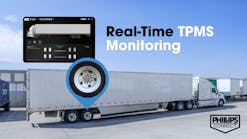A three-judge panel of the US Court of Appeals for the District of Columbia Circuit heard arguments on March 15 from the American Trucking Associations regarding changes the Federal Motor Carrier Safety Administration (FMCSA) made to the hours-of-service rules in 2011.
“The existing rules have a proven track record, and the agency’s purported reasons for tinkering with them were baseless,” said ATA General Counsel Prasad Sharma. “We’re hopeful the judges will see through the agency’s mere pleas for deference and after-the-fact explanations for a rule that was agenda-driven rather than evidence-based.”
FMCSA’s 2011 changes would put onerous restrictions on drivers’ ability to effectively manage their schedules by limiting the use of a restart period to once every seven days, as well as inflexibly mandating off-duty breaks during the workday. ATA contended that these changes were not supported by the data available and should be rejected.
Separately, a coalition of outside advocacy groups challenged FMCSA’s retention of the 11th hour of driving and the existence of the restart at all.
“Public Citizen and its cohorts also faced tough questions they didn’t have good answers for,” Sharma said. “Despite Public Citizen’s arguments, neither the law nor the data support Public Citizen’s contention that FMCSA was obliged to make the hours-of-service regulations more onerous than they are. Nothing they said today changed that.”
There’s no deadline for when the court must rule, but ATA is hoping for a swift decision.
Despite requests from ATA, CVSA, and other stakeholders asking FMCSA to delay implementation of the rules until three months after the court issues its decision--to save the industry and enforcement community the expense of preparing for a rule that might never go into effect--the agency has indicated it plans to begin enforcement as scheduled on July 1.








